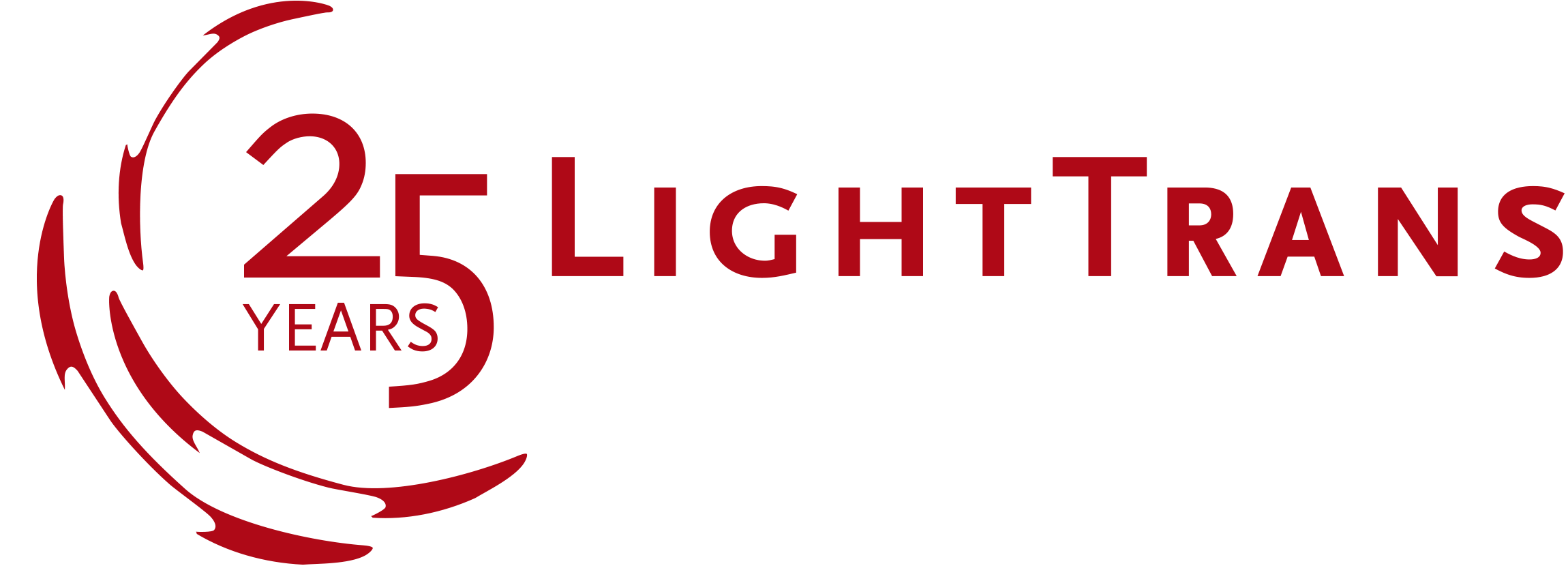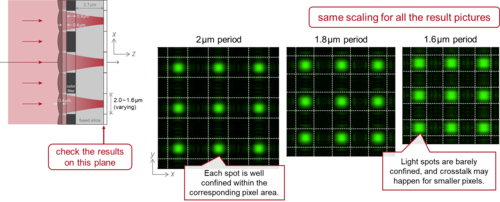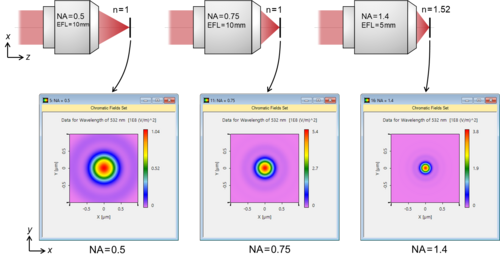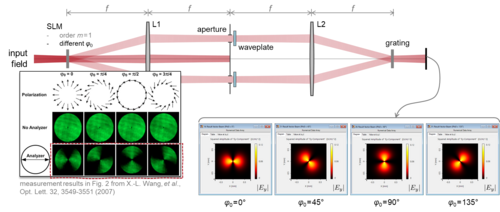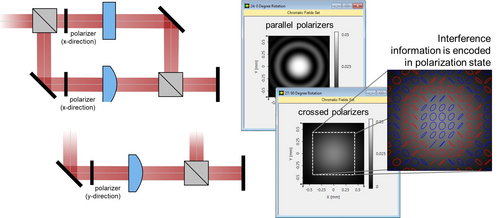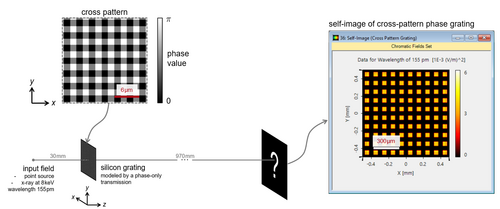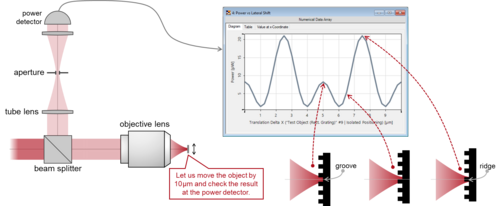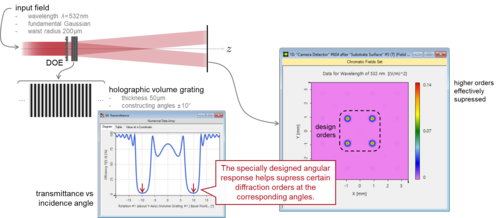What’s new in our Optical Modeling and Design Software?
Analyzing CMOS Sensor with Microlens on Top
By continuously decreasing the pixel size of CMOS sensors, better and better spatial resolution has been achieved in recent decades, with the tendency expected to continue. This, however, turns the spotlight onto the microlenses sitting on top of each pixel. Can a microlens still focus light as expected when the pixel size edges closer to the wavelength? We investigate this issue with VirtualLab Fusion at selected examples.
Read moreResolution Investigation
How to resolve better is an ever-present question in optical science, and how to judge the resolution of an optical system is therefore an important question. Following Ernst Karl Abbe (1840-1905) and John William Strutt, 3rd Baron Rayleigh (1842-1919), we demonstrate Abbe’s resolution limit and the Rayleigh criterion in VirtualLab Fusion and show how to use both analyses to evaluate the performance of typical imaging systems.
Read moreGeneration of Arbitrary Vector Beams with Interferometric Setup
Cylindrical vector beams have been found to be helpful in various applications. Following the work of X.-L. Wang et al., we build up an interferometric setup for the generation of vector beams. The setup consists of various types of optical components, including SLMs, gratings, apertures, waveplates and lenses. With the programmable function, the SLM transmission can be arbitrarily defined and varied, as in the example below. We demonstrate the generation of vector beams in VirtualLab Fusion and compare the results against those from the literature.
Read moreJoin Our Upcoming Online Events
Webinar:
Simulation of Interferometric Setups | 30 September
Virtual Talk:
Simulation and Analysis of high-NA Freeform Surfaces | 7 October
Webinar:
Lightguides for Mixed Reality Glasses | 21 October
Single Grating Interferometer for X-Ray
X-ray imaging technologies are often based on the Talbot effect and the self-imaging of gratings. Following the work of N. Morimoto et al., we selected three types of phase gratings and used each of them to build up single grating interferometers in VirtualLab Fusion. With proper Fourier transform settings, we calculate the self-images i.e. the diffraction patterns behind the phase gratings (modeled as transmission functions) and compare the results from different types of gratings.
Read moreConfocal Scanning Microscopy
Confocal laser scanning microscopy is a widely applied technology for both scientific research and industrial applications. Using a spatial pinhole at the image plane – conjugated to the location of the object – helps improve the resolution. We build up one such confocal scanning microscope in VirtualLab Fusion, and, especially with the help of the grating component, we use a metallic grating as the test object to demonstrate the working principle and visualize the effects at different locations in the system.
Read moreUsing Volume Gratings as Angular Filters
Volume gratings, due to their high spectral and angular sensitivities, can, in turn, be designed to function as either spectral or angular filters. Following the work of K. Bang et al., we construct such volume gratings in VirtualLab Fusion and analyze their angular response. In comparison to traditional spatial filtering employing a 4-f system, volume gratings can be integrated in complex systems compactly. As an example, we use a volume grating to suppress the higher diffraction orders of a DOE and demonstrate the effect.
Read moreRegister now for our next Webinar
We would like to invite you to take part in our next VirtualLab Fusion webinar. In order to adapt to different time zones worldwide, we will hold this webinar twice.
Read more